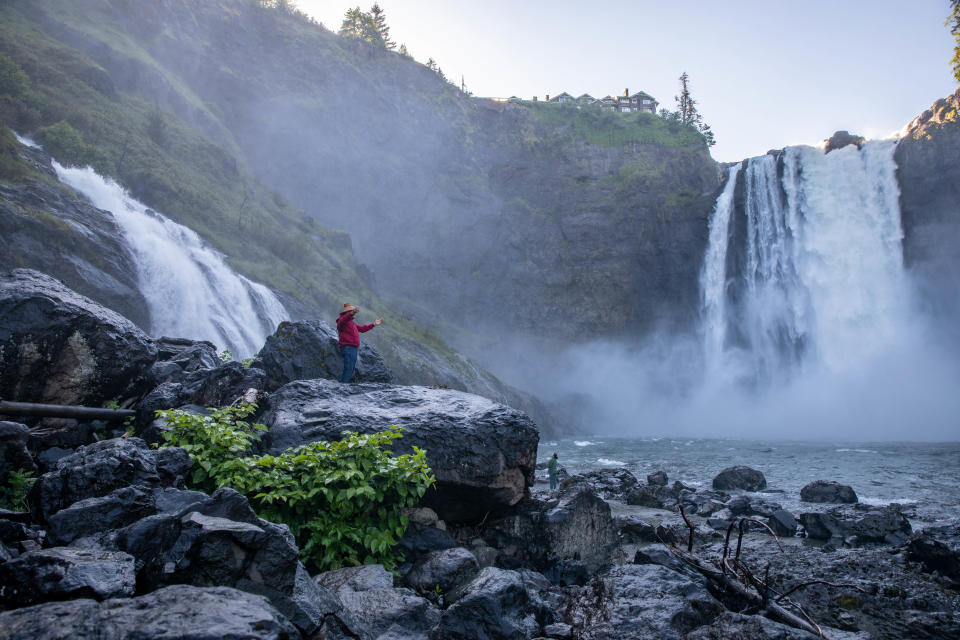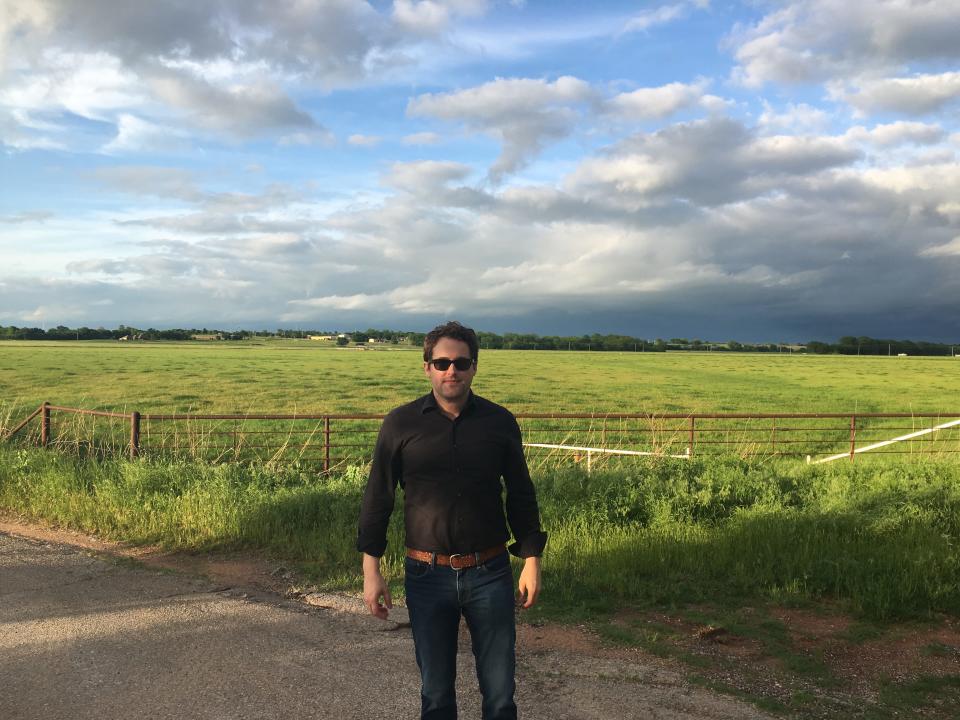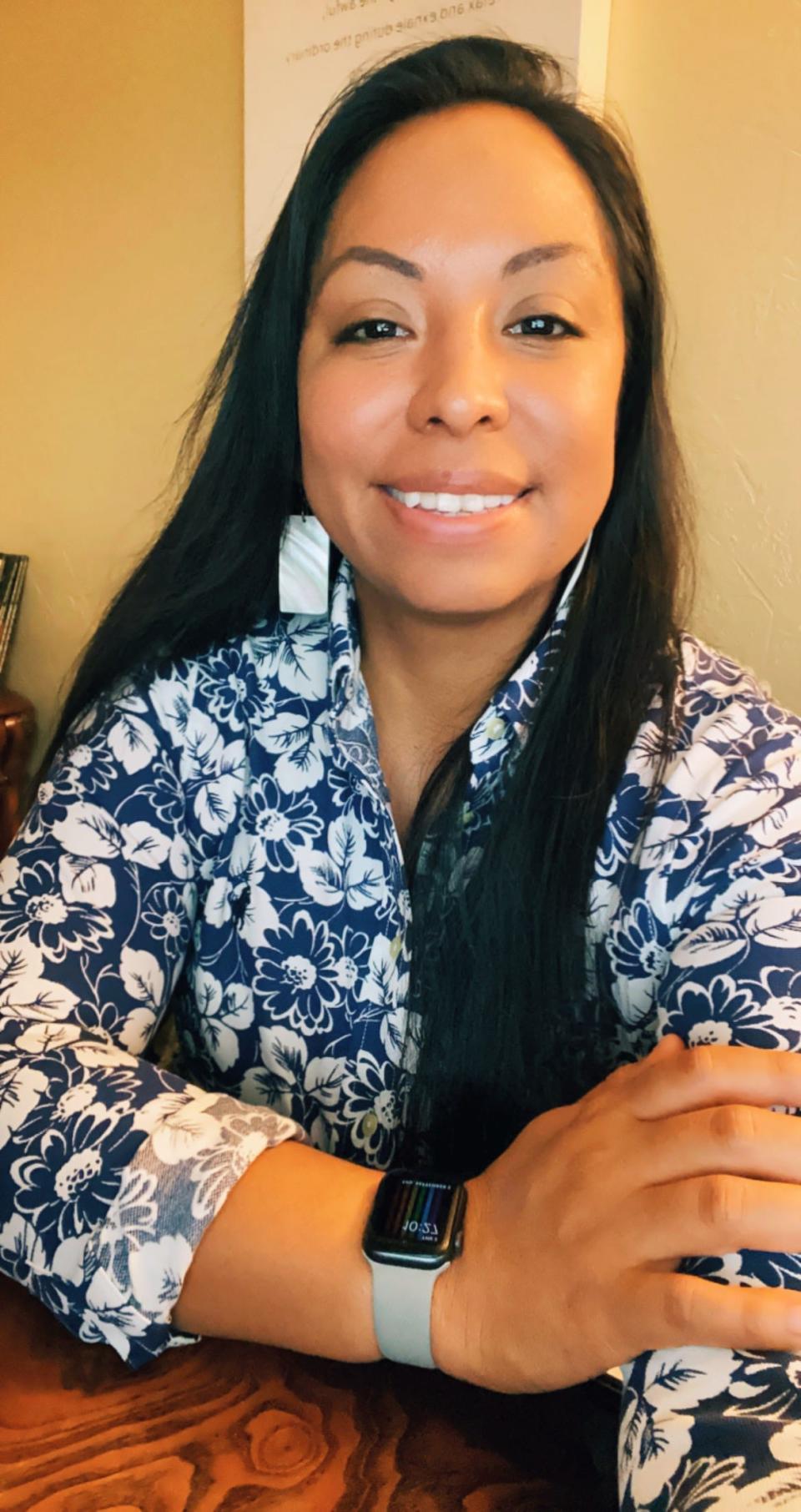What are tribal land acknowledgments? Native American leaders say words and actions are needed
Earlier this year, members of the San Jose City Council in California stood and recited the pledge of allegiance. Minutes later, Glorida Arellano-Gomez, councilwoman for the Muwekma Ohlone Tribe in the San Francisco Bay Area, led the virtual council meeting in a land acknowledgment.
"I would like to begin by recognizing that while we gather in the city of San Jose, we are gathered on the ethnohistoric tribal territory of the Tamien Ohlone," she said.
She pointed out local areas that had been used for territorial monuments and cemetery sites.
"It is vitally important that we not only recognize the over 10,000-year cultural history of this region on which we stand, but also recognize the first people of this ancestral homeland, the Muwekma Ohlone people, are alive and thriving members of the San Jose and broader Bay Area communities today," she said. "The land on which the city of San Jose is established was and continues to be of significance for Muwekma Ohlone Tribe."
The San Jose City Council is among a growing number of government bodies, universities and companies recognizing Native Americans in the United States through land acknowledgments.

An acknowledgment, which recently could be heard at the start of a Texas Christian University convocation, a Smithsonian Arctic Studies Center webinar streaming from Alaska and a Microsoft corporate conference in Washington state, recognizes the tribes and people who long inhabited and cared for the land where those institutions now stand. Universities and museums have designated website pages for them.
The statement, which can start at a couple of paragraphs but also run significantly longer, requires research into the past but brings that history to the present in recognizing tribes and urban Natives who are part of these communities today. The language takes many forms, but experts said it is imperative, when possible, to name specific tribes that have served as stewards of the land.
"We really want people to know that we were the original inhabitants, the original stewards and that we are still here," said Nipmuc Nation Chief Cheryll Holley, who emphasized the importance of knowing history without walling it off from the present.
Her central Massachusetts tribe participated in a September meeting designed to craft a land acknowledgment for UMass Chan Medical School in Worcester, an early step designed to be part of a larger collaborative relationship.
A land acknowledgement can turn into a problem if it becomes boilerplate recitation, a way to shut off an uncomfortable examination of brutal colonial history or to avoid taking further steps to develop relationships with Native communities, some professors and tribal members warned.
"They have a great potential, if it's more than simply reading a statement. … It can be a really great start for deeper education about tribal people and Indigenous communities," said Walter C. Fleming, director of the Native American Studies program at Montana State University and an enrolled member of the Kickapoo Tribe of Kansas.
"What I'm afraid of is that it will be like telling people at a conference, 'This is where the bathrooms are and then we'll do the land acknowledgment and now we'll get to the speech.' I don't want it to be that kind of thing where it seems like it's obligatory for political correctness," said Fleming, who has been working on a land acknowledgment for Montana State. "We tried to think of it as, rather than the end of a process, actually the beginning."
The Native Governance Center, a Native-led non-profit that helps tribes exercise their sovereignty, supports land acknowledgments but is concerned the necessary follow-up “action step just isn’t happening,” said Lauren Kramer, the group’s external relations officer. To that end, the center has created an action-plan guide that includes such suggestions as donating to Indigenous organizations and participating in Native-led protest movements.
'You're on someone else's land'
The modern gesture of land acknowledgments has roots in Native American culture for centuries, said Raymond Orr, chair of the department of Native American studies at the University of Oklahoma.
"Hundreds of years ago, if you (went) to somewhere new, you (would) acknowledge there are people dwelling there and make some kind of recognition that you're on someones else's land," said Orr, who is enrolled in the Citizen Potawatomi Nation. "So, if I, as a Potawatomi man, were to visit with Shawnee people, who live next to the Potawatomi these days, I would say, 'I would like to thank you for allowing me to be on your Shawnee land.' It's a very old and well-established tradition."
Native American studies: 'Senseless erasure': The US is reckoning with Indigenous education – from Hawaii to South Dakota to Maine

Land acknowledgments can vary in language, but they should mention the history of the place, name and correctly spell the tribes that first inhabited the land, note that they are sovereign governments, recognize tribal descendants who are part of the community today and commit to a relationship going forward, experts said.
The University of Minnesota Duluth, for example, follows that protocol with a statement saying it, "is located on the traditional, ancestral and contemporary lands of Indigenous people. The University resides on land that was cared for and called home by the Ojibwe people, before them the Dakota and Northern Cheyenne people, and other Native peoples from time immemorial. Ceded by the Ojibwe in an 1854 treaty, this land holds great historical, spiritual and personal significance for its original stewards, the Native nations and peoples of this region. We recognize and continually support and advocate for the sovereignty of the Native nations in this territory and beyond."
Land acknowledgment has established a foothold in the United States in just the past few years, but it has been a regular practice in other countries, including Australia, New Zealand and Canada, for a couple of decades, Orr said. (Millions got a brief glimpse of an acknowledgment during New Zealand filmmaker Taika Waititi's 2020 Oscars acceptance speech.)
The Native Governance Center created an advisory page after a recent surge in information requests, said executive director Wayne Ducheneaux II, an enrolled citizen of the Cheyenne River Sioux Tribe in South Dakota.
“We’ve really seen it explode in the last couple of years … everything from corporations and large foundations to a fifth-grade teacher in California," said Ducheneaux, whose organization, along with the Association on American Indian Affairs, advocates use of such terms as genocide, stolen land and forced removal in acknowledgments.
Words acknowledging the Native presence in the United States have value in and of themselves, especially when they result from rigorous research into the history of the land and its people, supporters said.
"It allows people to think more about what had happened here for thousands of years before Euro-American society was here," said Orr. "It's worth it to (realize) that other people exist, that they had complex and worthwhile civilizations and continue to do so under a great deal of duress."
Scott Langston, a Texas Christian University religion professor appointed last year as the university's Native American nations and communities liaison, said the increased frequency of land acknowledgments reflects greater "sensitivity on the part of our nation, especially to Native peoples," a sentiment that was heightened by the overall social justice activism that followed the killings last year of George Floyd, Breonna Taylor and other Black Americans.
"If our nation is going to ultimately deal with the many injustices that we're trying to deal with right now, we have to include Native Americans in that conversation because that's where it begins on this continent," said Langston, who is not of Native heritage.
Amber Silverhorn-Wolfe, a member of Texas Christian University's Native American advisory circle who serves as education services administrator for the Wichita and Affiliated Tribes, sees the statements as a constructive effort to come to terms with a brutal past of displacement and abuse of Native peoples.
Growing interest: Indigenous Peoples Day or Columbus Day? 14 states celebrate, honor Native American histories and cultures

"A lot of universities have been reaching out lately, so I think they understand the implications that have stemmed from how their establishments were built. They've been built off genocide and slavery and I think this is a way of reconciling and (providing) that acknowledgment … to tribal nations that once resided in this land space," said Silverhorn-Wolfe, a Wichita and Affiliated tribes member who was introduced to the practice by Indigenous presenters at a 2018 conference in New York.
Native Americans 'don't want to be just somebody's checkbox'
Although there is some skepticism that land acknowledgments may be used as hollow lip service, advocates of the statements said they haven't heard much criticism, save for a bit from those who contend it represents left-wing politics.
Since the first official reading of Texas Christian University's land acknowledgment at a convocation in September, the response has "been very positive. People have embraced and endorsed it and thanked us," said Langston, who has not experienced opposition. "I'm sure there are some who don't agree or don't like it, but I haven't really heard anything."
The UMass Chan Medical School initiative was spurred by the academic research of its librarians, said Marlina Duncan, who arrived last year as vice president for diversity and inclusion. Conversations about the statement led to a meeting last month that included tribal representatives and re-energized an existing relationship that could lead to further collaborations, she said.
"It's one thing to do the document. That's kind of the easy part. But then how do we sustain those relationships and have something that really grows out of it?" Duncan said.
The process of working toward a land acknowledgment can be as enduring and significant as the ultimate statement, Nipmuc Nation chief Holley said.
"While we think land acknowledgments are great, we prefer to work with people who want to establish a relationship with us," said Holley, who works at the Worcester hospital affiliated with the UMass medical school. "We don't want to be just somebody's checkbox."
To that end, she hopes the medical school will provide assistance and research regarding tribal health-related matters, including incidents of diabetes and heart disease, and the related problem of members living in "food deserts," areas where residents don't have easy access to healthy, affordable food.

"We've had this effort of food justice and food sovereignty to change the way that we eat, exercise and take care of ourselves, and if UMass would partner with us on some of those efforts, that would be wonderful," said Holley.
Duncan said that's exactly the direction the university is moving in.
Health-related assistance "is something that we can absolutely act on. Our students, physicians and researchers are very interested," she said.
Indigenous Americans want action, not just words
A land acknowledgment is also part of the budding relationship between Texas Christian University and the Wichita and Affiliated Tribes, on whose ancestral homelands the Fort Worth, Texas, the university is located.
Besides a granite monument dedicated in 2018 that commemorates all Native American peoples who have lived in the region and a land acknowledgment adopted earlier this year, Texas Christian University has published a guide for recruiting Native American students and employees, both underrepresented at the school and at most campuses across the United States, as part of its Native American & Indigenous People's Initiative. Langston hopes the guide will help other schools, too.
The school has also provided books for an Indigenous library at the Wichita community's Anadarko, Oklahoma, tribal home and a collaboration between the tribe and university faculty resulted in a new language app that will help teach Wichita vocabulary, said Silverhorn-Wolfe, who lives in Oklahoma.
"That's a little (example) of those working relationships, what it can do for TCU, what it can do for us as tribal people," she said.
A growing number of outside requests for land-acknowledgment language inspired members of Washington state's Snoqualmie Tribe to take action in a different way. They created the Snoqualmie Tribe Ancestral Lands Movement, which suggests ways for people to respect sacred outdoor spaces during recreation and asks them to urge their governments to consult with the tribe on matters affecting Snoqualmie lands.
"There's a growing recognition that just reciting a land acknowledgment can become quite performative on its own. It's not actually taking action. So, one of the reasons we are sharing information through the lands movement was to make sure that we're providing ways in which people could translate that," said Jaime Martin, a Snoqualmie Tribe member and executive director of governmental affairs and special projects. "A land acknowledgment can be done through practice and action, not just something that you're stating."
This article originally appeared on USA TODAY: Native Americans recognized as tribal land acknowledgments grow in US

